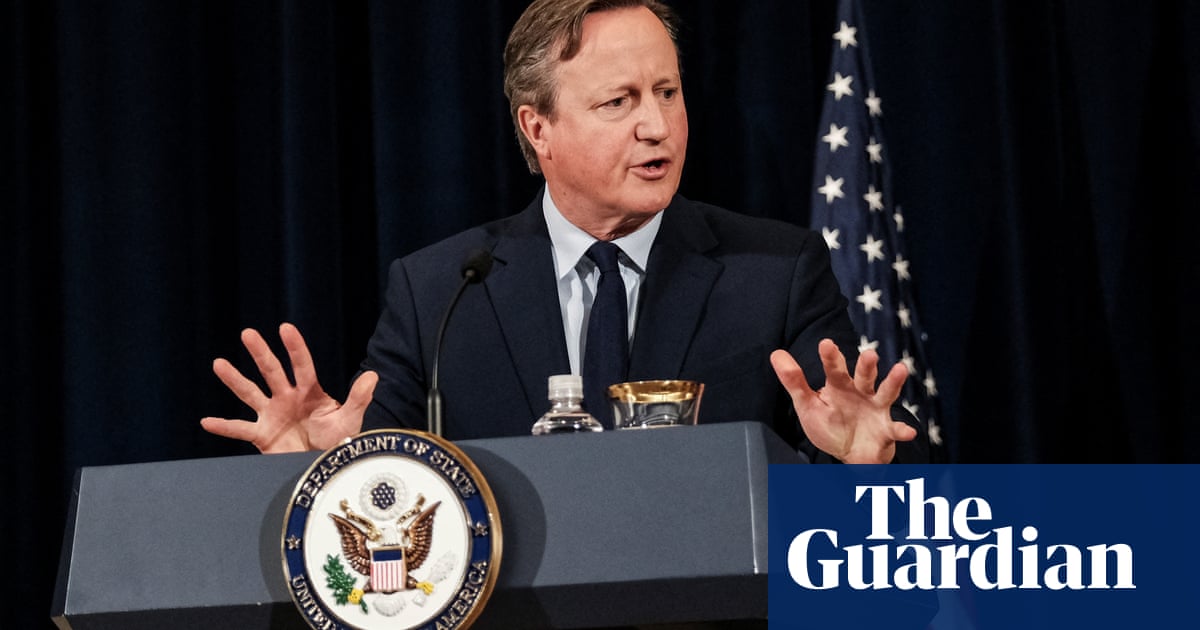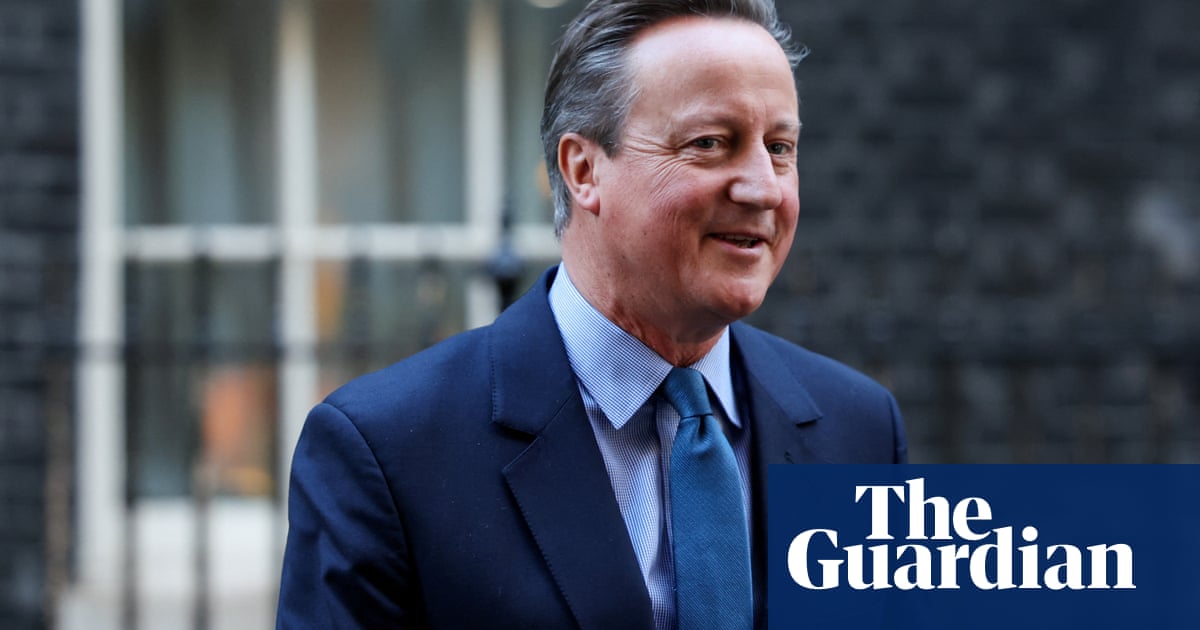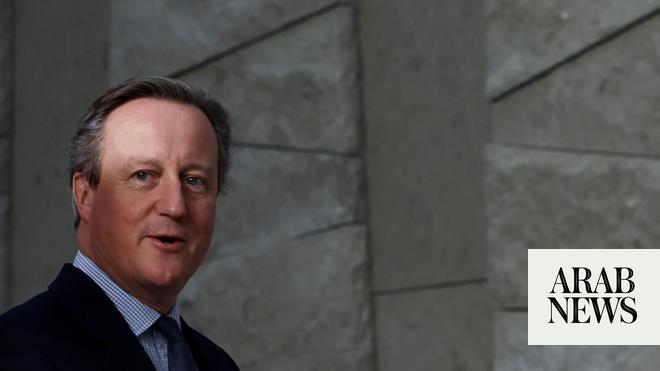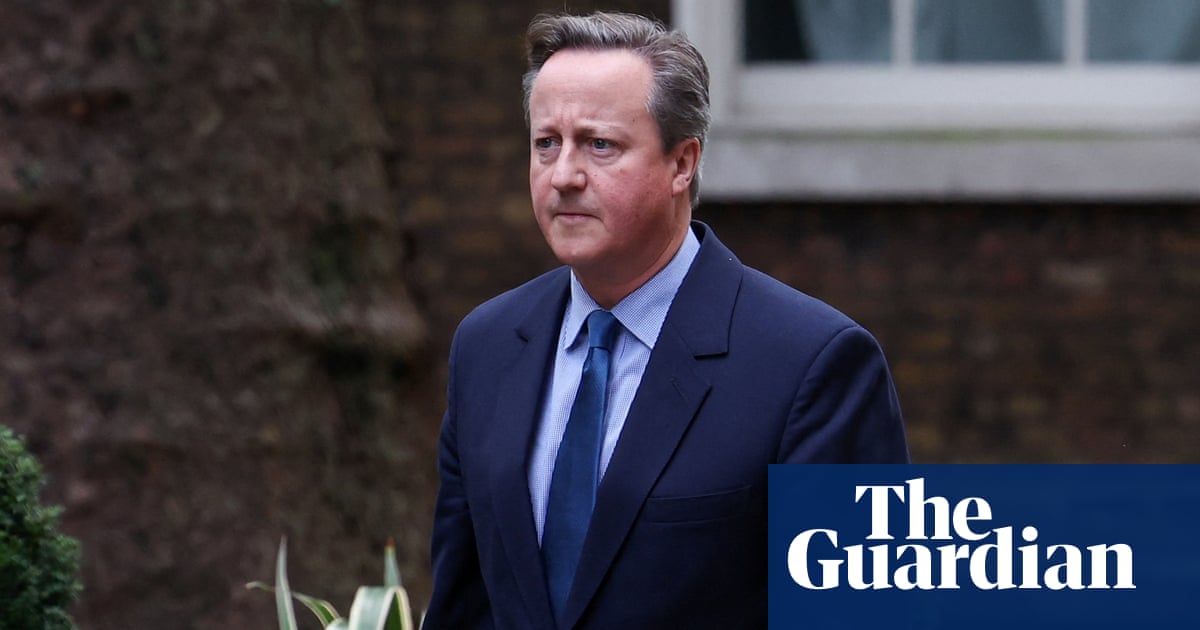
David Cameron discussed the establishment of a $1bn UK-China investment fund – of which he was to become vice-chair – in a meeting with the then chancellor Philip Hammond just 15 months after leaving office as prime minister, despite the convention aimed at preventing former ministers from lobbying for two years.
Correspondence obtained by the Observer and the Bureau of Investigative Journalism indicates that the meeting drew no concerns from the ministerial jobs watchdog because Cameron had not yet begun a formal role with the fund, highlighting yet another loophole in the UK’s lobbying guidelines.
As part of its transparency obligations the Treasury had previously disclosed that Cameron met Hammond, who served as his foreign secretary, in October 2017 “to discuss China”. It had not said whether their discussion included the UK-China fund that Cameron was in the process of helping to establish.
But the Observer and the Bureau of Investigative Journalism can reveal that Cameron told Hammond “of his plans to create a commercial UK-China fund to invest in innovative, sustainable and consumption-driven growth opportunities”. This was admitted by Hammond to Peter Dowd, Labour MP for Bootle and the then shadow chief secretary to the Treasury, in an April 2018 letter that has not been reported on until now. It also reveals that Cameron received general government approval for the proposed venture before it became fully operational.
A spokesperson for Cameron said: “In 2017 he held meetings with UK and Chinese ministers about the potential for a fund, to ensure that if a fund was established, it would be welcomed by both governments.” Hammond said Cameron informed him about the investment fund “in the interests of transparency”. The then chancellor and his Chinese counterpart publicly endorsed the fund shortly afterwards during a trip to Beijing.
At the October 2017 meeting, Hammond expressed his general support for Cameron’s project. “As I noted to Mr Cameron during our meeting, the government is generally supportive of any private sector initiative that furthers UK-China collaboration,” Hammond said in his letter to Dowd. “Mr Cameron did not at that stage have specific plans for his role in the fund, nor did he ask for government support, given the government has no involvement in the staffing of private sector initiatives.”
This was contradicted by the Advisory Committee on Business Appointments (Acoba), which said that Cameron applied for advice from the committee the same month and, according to Acoba’s letter in response, “explained that he would be vice-chairman of the fund and this would be a paid role”.
In December 2017, Acoba approved Cameron’s role, saying the former prime minister outlined a broad remit for himself, including an active role in the fund’s strategy, structure and investments.
Acoba said: “The independent committee’s role is to give advice under the government’s rules and make that advice transparent. All other matters – such as whether the rules are right or whether ministers are able to meet former prime ministers – are a matter for the government.”
While the ministerial code says that departing ministers and senior civil servants must seek advice from Acoba when taking on a private sector role, the body does not have any power to enforce its recommendations.
Bob Kerslake, the former head of the civil service and a crossbench peer, said the current and previous lobbying scandals made a strong case to give Acoba statutory powers.
Lord Kerslake said of the current system: “It relies on people playing by the rules, and there are some high-profile cases where people have not followed the process. That, I think, has weakened it to the point where we need to look again at whether a statutory model is needed.”
A spokesman for the former prime minister said: “David Cameron has never lobbied the UK government about the UK-China fund and no work or tentative discussions about the fund took place while he was prime minister. These discussions [in 2017] were not in any way seeking financial support for the fund, but merely to gain support for the concept of a bilateral fund.”
The Treasury said: “The bilateral UK-China investment fund was a private, commercial venture. Like other private initiatives mentioned at the dialogue it did not involve government participation or funding.”












